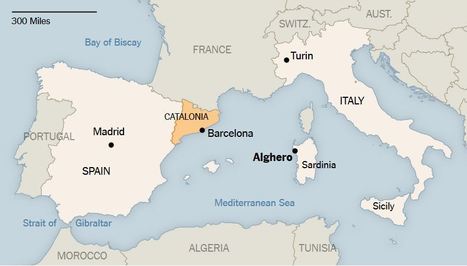"Of the national identity attributes included in the Pew Research Center survey, language far and away is seen as the most critical to national identity. Majorities in each of the 14 countries polled say it is very important to speak the native language to be considered a true member of the nation."

|
Scooped by Dennis Swender |





 Your new post is loading...
Your new post is loading...











